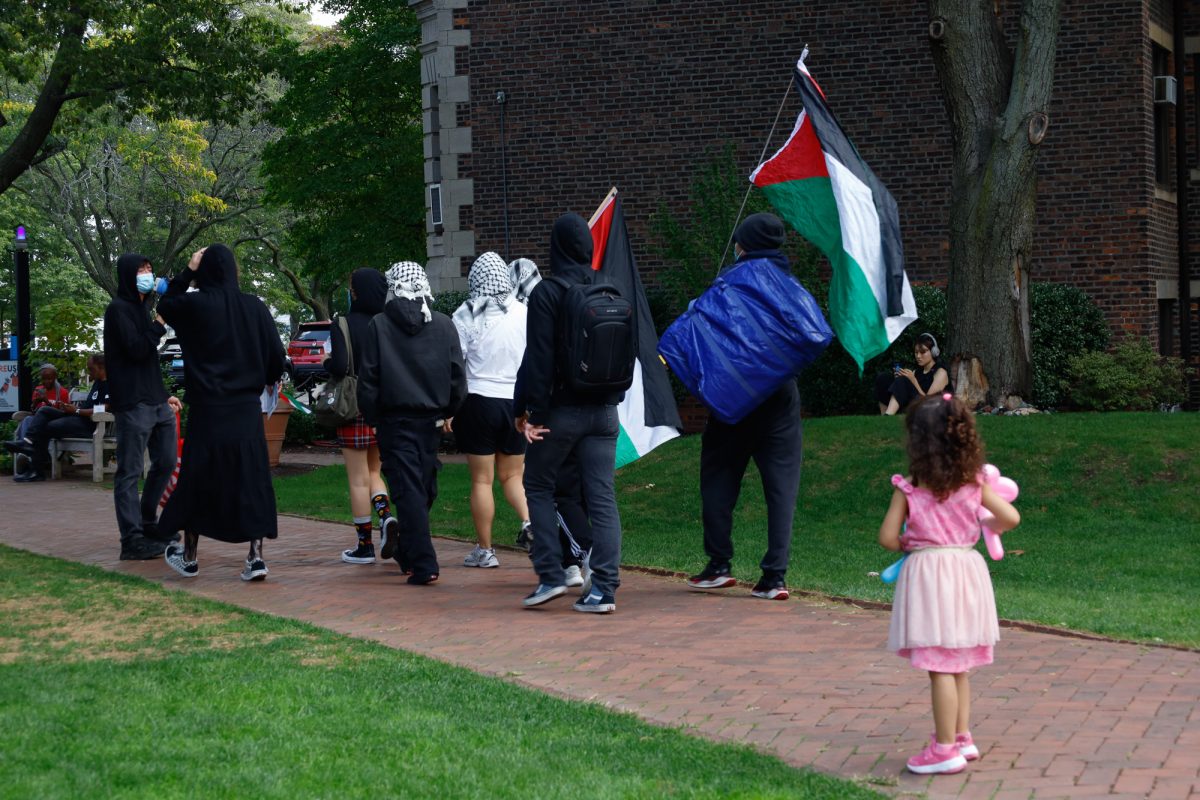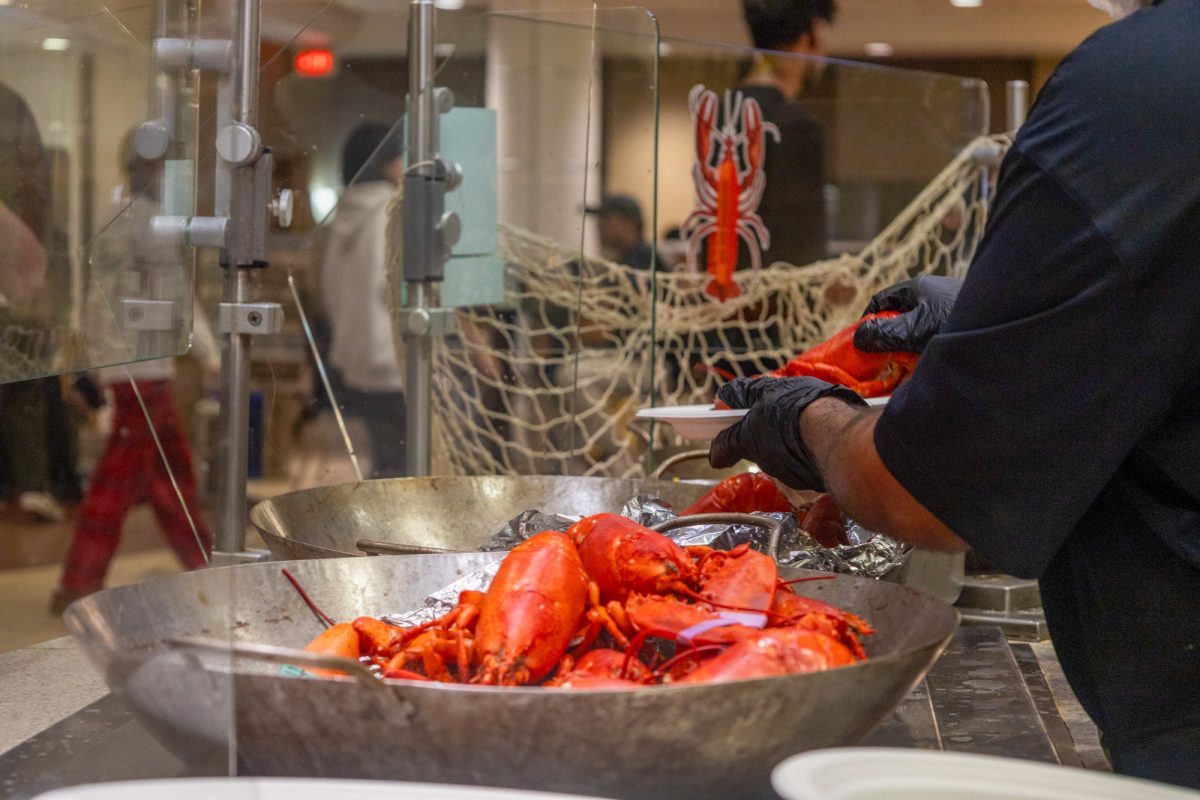
The typical Boston University student could scroll through their Facebook news feed and find an absurd post or image that would be confusing to most. But for many students, these posts have deeper meanings that help foster a sense of community on campus.
BU’s “Stolen Memes for Unoriginal Teens” Facebook group, which was created last February, has recently hit its 15,000-member mark.
Group creator Mac Parker wanted to keep the meme page alive after he graduated. Following an informal application process last May, he selected Hanaan Yazdi and Claire Tran to serve as the new group administrators.
Yazdi said the group was created after BU elected not to cancel classes for a snow day last year.
“Students were really mad about that and already [started] posting memes about it,” Yazdi said. “I remember people were discussing how a lot of other universities had meme pages but we didn’t. All of a sudden the BU meme page popped up and it gained a crazy amount of popularity in like a couple of weeks.”
The group is public and anyone is welcome to join, Yazdi said. She said the group gives a sense of community to BU students who don’t otherwise know each other.
“People just like memes,” Yazdi said. “People like to have a space to talk about the university, events or things that are relevant [to students].” Tran, a senior in the College of Communication, said the meme page allows students across campus to share and laugh about the same things.
“My favorite part about memes is how [they] reference current events, pop culture [and] things that happen around campus,” Tran said. “Whenever something big happens around campus there’s always a bunch of memes that come out.”
CAS sophomore Dan Portnof said he likes the BU meme page because he thinks memes are “a really interesting way that a lot of people convey comedy.”
“[A meme] is very simple to understand and generally only takes a few seconds to receive, interpret, and appreciate,” Portnof wrote in a Facebook message. “Nowadays, since everything is moving in that direction, it’s a great way to digest comedy that addresses a lot of different subjects in a very short period of time.”
But the simplicity of memes and the way they are made and shared throughout the community has its drawbacks too.
CAS senior Zachary Thomas said that while he finds the BU meme page a good source of stress relief, it’s not without its problems.
“The only thing I don’t like is that some of the things that are posted are issues we should try and change on campus,” Thomas wrote, “and I think it takes away from that.”
Stanislava Labetskaya, a senior in the Questrom School of Business, said she thinks the quality of the memes posted has decreased.
“When I joined the group, I thought it was hilarious, but now I find it slightly annoying,” Labetskaya wrote in a Facebook message. “Sometimes the jokes are not even funny, but people laugh at them because they have certain clichés … that are kind of outdated.”
Tran said part of the group’s popularity comes from people’s love of tagging their friends in posts.
“The memes that that are most relatable [receive the most engagement],” Tran said. “They’re the most successful because people tag their friends and they’re like ‘Ha ha this is so you.’”
CAS junior Mackenzie Starnes, who has often been called the “Meme Queen” on the page for the popularity of her memes, said tagging friends in memes is a way for students to show support for each other.
“It makes us feel special, recognized, and hopefully reassured that we aren’t going through this funny hell alone,” Starnes wrote in a Facebook message.
Starnes said her prolific meme-posting career began as a way of coping with the difficulty of adjusting to a new location.
“I’ve always been a super sarcastic person and a bit of a pessimist,” Starnes wrote. “I found it hard adjusting to Boston after moving here from California, so making fun of BU was therapeutic.”
Starnes wrote that she receives an average of 1,000 likes on her posts every time she posts a meme in the group.
“[It’s] insane,” Starnes wrote, “people have approached me at parties and have literally recognized me from the page.”
Starnes doesn’t think it’s the worst thing to be known for — she said she actually very much enjoys it.
“Laughing at ourselves and our oddly-specific university culture makes us all closer,” Starnes wrote. “As cheesy as it is, it’s the common thread that binds us all.”
When the group was created a year ago, it consisted primarily of Parker’s friends. Now, with more than 15,000 members, it has taken on a more useful purpose.
“I’ve definitely heard from people that it’s kind of helped [create] a sense of campus culture that maybe wasn’t there before,” Parker said. “To some extent it also gives people a place to vent about things and work out differences and stuff like that.”
CAS junior Tal Salomon said he thinks the group is a good reflection of the BU community and the ways in which its members have changed together since the group was created.
“If you look back far enough, you can easily see how our focuses as a collective have changed over time,” Salomon wrote in a Facebook message. “[The group] is a great way for the BU community to grow and develop stronger bonds with one another.”
Salomon added he appreciates the group’s accessibility to students across BU.
“I think it’s great that it’s accessible to anybody because its low entry requirements mean that everybody has the capacity to make a meme and potentially see it featured,” Salomon added.


















































































































